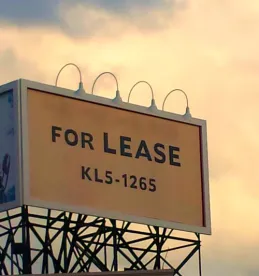A bill to amend New York City law to establish conditions and requirements for commercial lease renewals with the aim of preserving small businesses will have its first hearing in the City Council since 2009 on October 22, 2018.
If adopted, the “Small Business Jobs Survival Act” (SBJSA) would amend the administrative code of New York City to require landlords to, among other things:
- Notify commercial tenants 180 days before their lease expires if they are going to be offered a renewal or give a valid reason why not;
- Offer a 10-year lease extension; and
- Enable tenants to seek arbitration to contest lease terms.
Bill’s History and Intent
Intro. 737-A, often described as “commercial rent control” legislation, was introduced by Council Member Ydanis A. Rodriguez (D-Manhattan) and co-sponsored by 15 other Members. Intro. 737-A is similar to legislation proposed many times over the years, going back to a bill introduced in June 1986 by then-Council Member Ruth Messinger. Rodriguez stated that he introduced the bill in response to ongoing speculation in commercial leases.
New York City is dependent in part on the small business sector for job growth and revenues. The bill sponsors contend in the Legislative Intent of the bill that the present commercial rental market provides no legal protection for the interests of commercial tenants. This lack of protection, it continues, has accelerated the closing of small businesses and resulted in lost jobs and tax revenues, as well as community instability. The bill states that its goal is to give small businesses rights in the commercial lease renewal process, which would help them survive and encourage job retention and growth.
Legality Questions
In the 30 years since Messinger introduced her bill, many have pointed to serious preemption and constitutional issues for not bringing a commercial rent control bill to the Council floor for a vote. New York State law governs commercial activity and the State has not given the City explicit power to act on rent control. Further, state court case law provides that the City cannot institute residential rent control. Additionally, the mandatory lease length and arbitration set out in the bill may violate federal law by limiting the freedom to contract provided under the Fourteenth Amendment.
Supporters of the SBJSA argue that no one has ever publicly raised these legal challenges and these claims are merely stall tactics from the real estate industry. Yet, in September 2018, the New York City Bar Association published a report outlining legal concerns regarding the SBJSA.
Process
Intro. 737-A sets out the process for commercial lease renewal, including requirements for lease renewal terms, arbitration-triggering conditions, limits on security deposits, and prohibitions on landlord retaliation.
The requirements are as follows:
- All leases of commercial premises must be renewed at the option of a tenant who did not lose the right to renew a lease. Such lease renewals must be for a minimum term of 10 years, provided, however, that at the tenant’s option, and with the written approval of the landlord, a lease of shorter or longer duration may be selected.
- Where the landlord agrees to renew the lease of the current tenant, the landlord must notify the tenant at least 180 days prior to the expiration of the lease. If the landlord and tenant agree, they may at any time renegotiate a new lease, with any agreed to terms and conditions, not inconsistent with the provisions of the law. The tenant is to continue rent payments as set forth in the original lease until the parties reach an agreement on a lease renewal or until a decision is otherwise rendered through the arbitration or mediation processes described in the bill.
- Where the landlord refuses to renew a lease, the landlord must provide notice to the tenant a minimum of 180 days before the expiration of the lease, and state the reason or reasons for such denial in detail. Failure of the landlord to give such notice will subject the parties to arbitration. If the tenant still wishes to challenge and apply for a renewal of the lease, then the tenant must notify the landlord within 30 days of receipt of the refusal and seek arbitration on the issue of renewal. The tenant then must notify the administering agency and the American Arbitration Association within 14 days of notifying the landlord of the challenge.
- Security deposits may not exceed an amount equal to two months’ rent and must be placed in escrow in an interest-bearing account at a federally insured bank located in New York State.
- No landlord may in any way retaliate against any tenant for the tenant’s assertion or exercise of any rights under the SBJSA. Any such retaliation may subject the landlord to a suit for actual and punitive damages, injunctive relief, and attorney’s fees.
***
Intro. 737-A will be heard in the Committee on Small Business. Council Speaker Corey Johnson (D-Manhattan) has indicated his serious consideration of advancing legislation on this subject, and the Real Estate Board of New York has continued to raise concerns.



 />i
/>i

